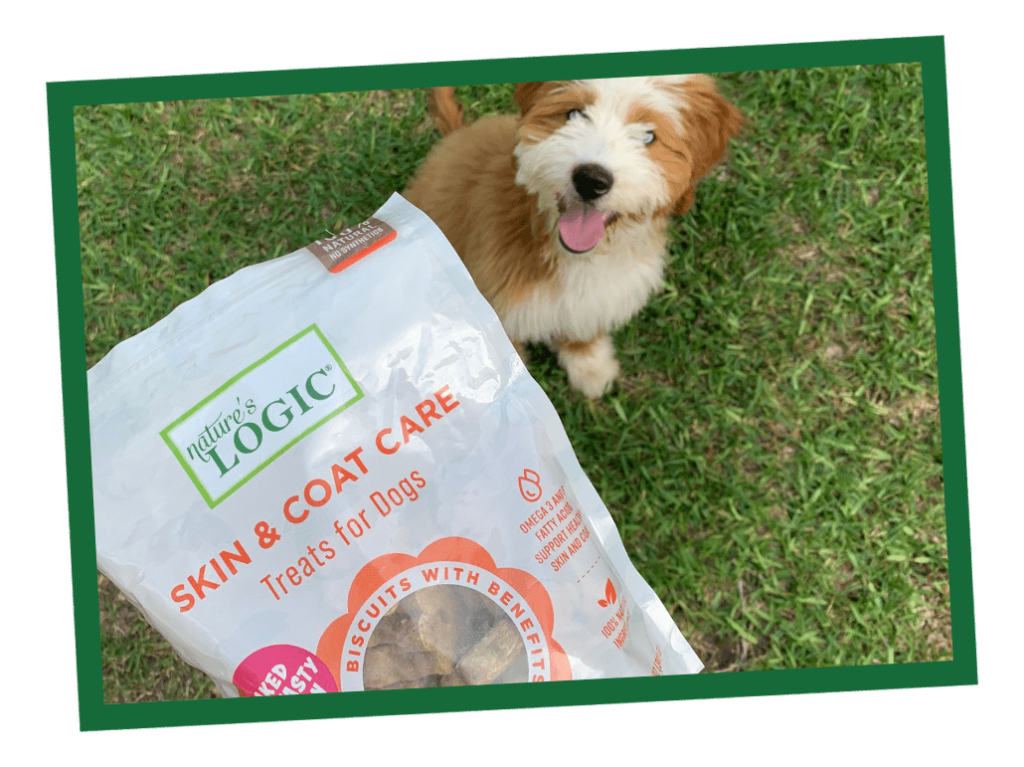Nutritional Supplements: When and How to Use Them in Your Pet’s Diet

Nutritional Supplements for Pets: A Deep Dive into Their Benefits
The health and well-being of our furry companions is a top priority for pet owners. As the pet industry grows, nutritional supplements have emerged as an essential consideration in maintaining a balanced diet. But when should you introduce these supplements, and how can they benefit your pet?
Understanding the right time and method for using nutritional supplements can make a significant difference. Here are key factors to consider:
- Age: Puppies and kittens require a carefully balanced mix of nutrients to support their rapid growth. For instance, high levels of omega-3 fatty acids are essential during this phase for brain development. Conversely, senior pets often face different health challenges; therefore, tailored supplements can help maintain joint health and vitality in older animals.
- Health Conditions: Specific health issues can lead to deficiencies that can be offset through targeted supplements. For example, pets suffering from arthritis may benefit from glucosamine and chondroitin, which can help reduce joint pain and improve mobility. Similarly, pets with digestive issues might find relief through probiotic supplements that promote gut health.
- Dietary Gaps: If your pet’s food does not meet all their nutritional needs, supplements can address deficiencies. For instance, if you’re feeding a grain-free diet, it may lack certain vitamins and minerals, necessitating supplementation with a multivitamin specifically formulated for pets.
Choosing the appropriate supplement requires education. Familiarize yourself with common types of pet supplements, such as:
- Vitamins: Essential for overall health and immunity, such as Vitamin E, which acts as an antioxidant that can improve your pet’s overall health.
- Minerals: Important for bone development and metabolism, calcium and phosphorus are critical in forming strong bones and teeth, especially in growing puppies and kittens.
- Fatty acids: Beneficial for skin health and coat quality, omega-3 and omega-6 fatty acids can drastically improve your pet’s skin condition and promote a healthy, shiny coat.
Incorporating these supplements into your pet’s diet does not have to be complicated. Most supplements come in various forms, such as chewable treats, powders, or liquids, making them easy to administer. The key is understanding when, why, and how to use them effectively to enhance your pet’s life.
As we continue to explore the world of supplements, keep in mind that consulting with your veterinarian is crucial. They can guide you in selecting the right products tailored to your pet’s specific needs. Ready to dive deeper and provide the best for your beloved pets? Take the time to research and discover the options available to support the overall health and happiness of your furry family members!

DISCOVER MORE: Click here to learn about balanced nutrition for your pet
Navigating the Landscape of Nutritional Supplements
As you delve into the vast world of nutritional supplements for pets, it’s essential to recognize the diverse needs of your furry friends. Each pet is unique, which means their nutritional requirements may vary significantly. When considering supplements, it is crucial to evaluate aspects like the type of diet you are providing, your pet’s lifestyle, and any specific health concerns.
Understanding your pet’s dietary habits is the first step in determining if nutritional supplements are necessary. For instance, if your dog or cat is on a commercial diet, it may contain adequate nutrients. However, homemade diets often lack crucial vitamins and minerals, necessitating the introduction of supplements. Ingredients sourced from whole foods are not always complete; thus, a multivitamin can be tremendously beneficial in ensuring your pet does not encounter deficiencies.
Create a Personalized Nutrition Plan
The path to a personalized nutrition plan is shaped largely by your pet’s individual needs. The following factors are vital when contemplating supplements:
- Breed Specifics: Certain breeds of dogs and cats may have predisposed health issues. For example, larger dog breeds are more prone to joint problems, making glucosamine and chondroitin supplementation essential for long-term health.
- Activity Level: An active pet burns more energy and requires more nutrients than a sedentary one. Athletes or working dogs may benefit from higher levels of protein and omega-3 fatty acids to support muscle recovery and joint health.
- Environmental Factors: Fluctuations in climate, pollution, and outdoor exposure can affect your pet’s health. In regions with harsh weather, fatty acid supplements may help maintain skin and coat quality, while antioxidants can bolster their immune system.
Choosing the right supplements involves an education process. As a pet owner, familiarize yourself with the following supplements typically utilized in pet diets:
- Probiotics: These beneficial bacteria can enhance gut health and boost your pet’s immune system, particularly during or after antibiotic treatments.
- Fiber Supplements: If your pet suffers from constipation or diarrhea, adding fiber can promote digestive regularity and overall gut health.
- Joint Health Supplements: Products containing glucosamine, chondroitin, and MSM are popular among pet owners seeking to alleviate symptoms of arthritis and promote joint integrity.
Incorporating these supplements into your pet’s diet can be straightforward. The market offers a variety of formats, including palatable chewables and easy-to-mix powders, designed to cater to even the pickiest of pets. Understanding the ‘when’ and ‘how’ is essential to maximize their effectiveness and ensure the well-being of your beloved companions.
No matter the circumstance, consultation with your veterinarian should remain at the forefront of your approach. Their expert recommendations can guide you in identifying the most suitable supplements for your pet’s unique requirements. Ready to elevate your pet’s health? By taking these insights into account, you’re already on the path toward a healthier, happier life for your furry friend.
Nutritional Supplements: When and How to Use Them in Your Pet’s Diet
Nutritional supplements play a crucial role in enhancing the overall health and well-being of your pet. Understanding when and how to incorporate them into your pet’s diet can significantly impact their quality of life. Factors such as age, breed, and specific health concerns should guide your decisions regarding supplementation.
For instance, senior pets often require additional nutrients to support their declining health. Joint supplements like glucosamine and omega-3 fatty acids can help mitigate arthritis pain and promote mobility. Puppies, on the other hand, might benefit from supplements rich in DHA, which supports cognitive development and vision. Pet owners should always consult with a veterinarian before introducing any new supplements to their pet’s diet.
Moreover, specific health conditions such as diabetes or allergies may necessitate supplementation beyond standard diets. Probiotics can improve gut health, while antioxidant-rich formulas may assist in mitigating chronic conditions. It’s essential to familiarize yourself with the options available and their effects on your pet’s specific needs.
Supplements are not meant to replace well-balanced meals but should serve as a valuable addition. Always check for quality assurance and ensure that any supplements chosen meet the appropriate standards to guarantee safety. By carefully selecting and implementing nutritional supplements, you can play an active role in your pet’s health and wellness journey.
| Category | Advantages |
|---|---|
| Senior Pets | Support joint health and reduce mobility issues. |
| Puppies | Aid cognitive development and vision with DHA-rich supplements. |
| Health Conditions | Probiotics for gut health and antioxidants for chronic illness. |
By comprehensively understanding the role of nutritional supplements, you can be proactive in your pet’s health management. This exploration of when and how to use these products not only enriches your pet’s diet but also fosters a long, happy life together.
LEARN MORE: Click here for insights on behavior training
Timing and Method: Mastering Supplement Integration
Once you’ve identified the appropriate nutritional supplements for your pet’s unique needs, the next step is understanding when and how to integrate them into their daily diet. Timing can be crucial; for instance, specific supplements may work best when given with food, while others may be more effective when taken on an empty stomach. Knowing these distinctions can heighten the efficacy of the supplements and contribute to your pet’s overall well-being.
When to Introduce Supplements
Strategically timing the introduction of supplements can lead to optimal health benefits. Here are a few examples across different scenarios:
- Recovery Periods: If your pet has recently undergone surgery or illness, incorporating immune-boosting supplements such as Vitamin C or antioxidants can aid recovery. These should be introduced as soon as your veterinarian clears your pet for dietary changes.
- Age Considerations: Puppies and kittens thrive on nutrients that promote growth; however, older pets may require supplements for joint health or cognitive support. For senior pets, introducing fatty acids and antioxidants early on can prevent age-related issues.
- Seasonal Price: During winter months, pets often need additional support. Omega fatty acids can help maintain skin and coat health during dry seasons, while probiotics can assist in gut health amid seasonal stressors.
Best Practices for Supplement Administration
The method of administering supplements can play a significant role in their health benefits. Below are some suggestions for effective integration:
- Consistency is Key: Establish a routine for administering supplements, as pets thrive on predictability. Incorporating it into their mealtime ritual can ensure they receive it daily without resistance.
- Choose Palatable Forms: Many companies now offer supplements in forms that are more appealing to pets, including treats, chewable tablets, and liquid options. Experimenting with different formats may help your pet accept the supplement more willingly.
- Monitor Reactions: After introducing a new supplement, keep a close eye on your pet for any changes in behavior, appetite, or physical appearance. Consult your veterinarian if you notice any adverse reactions or if the expected benefits do not materialize.
Furthermore, consider the synergistic effects of combining different supplements. Some nutrients work better together, enhancing their overall effectiveness. For example, pairing Omega-3 fatty acids with joint support supplements can provide comprehensive benefits for mobility and skin health.
Understanding Dosages and Guidelines
An important element in using nutritional supplements effectively is to adhere to recommended dosages. Over-supplementation can lead to toxicity or adverse reactions. Always follow the guidelines provided by the supplement manufacturer or your veterinarian. For reference, the Association of American Feed Control Officials (AAFCO) provides valuable information on nutrient levels in pet products, which can further guide your decisions.
As the landscape of pet nutrition continues to evolve, informed choices regarding nutritional supplements can profoundly impact your pet’s health and lifespan. Staying current with reputable research and expert recommendations will enhance your decisions, fostering a desire for lifelong wellness in your furry companions.
DISCOVER MORE: Click here to learn about the transformative power of rescue pets
Final Thoughts on Integrating Nutritional Supplements into Your Pet’s Diet
In summary, nutritional supplements can play a transformative role in your pet’s health and well-being, provided they are used thoughtfully and judiciously. Understanding when and how to integrate these supplements into your pet’s diet is paramount for maximizing their benefits. Whether it be during recovery from an illness, as part of a regimen for aging pets, or in response to seasonal changes, the timing of supplementation can significantly enhance your pet’s nutritional profile.
Moreover, effective administration is crucial. Adopting consistent routines, opting for palatable forms, and closely monitoring your pet’s reactions will optimize the supplementation process. Remember, not all supplements are created equal; some work better in synergy with others, reflecting the need for a tailored approach based on individual needs. This customization extends to understanding proper dosages to avoid the pitfalls of over-supplementation, which can lead to adverse effects.
As you embark on this journey of enhancing your pet’s diet, it’s vital to remain informed. Consult with your veterinarian, who can provide tailored advice and help you navigate the myriad of options available. Staying updated with reputable sources on pet nutrition will empower you to make the best decisions for your furry companion’s health. Ultimately, a conscious effort toward integrating appropriate nutritional supplements can promote not just a longer lifespan but also a richer quality of life for your beloved pet.



